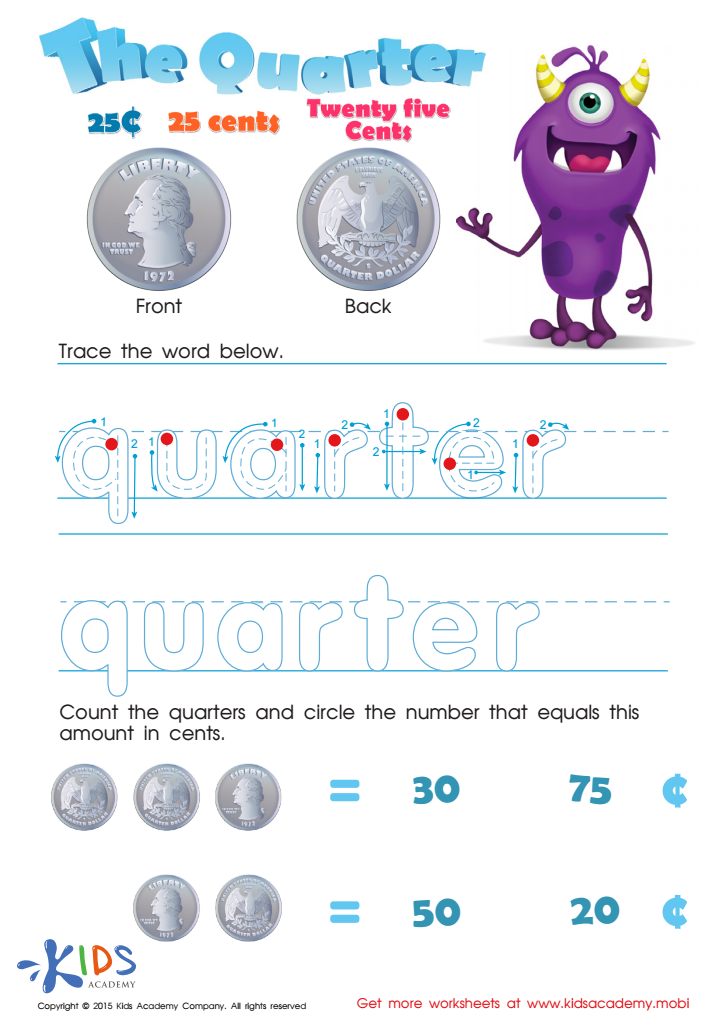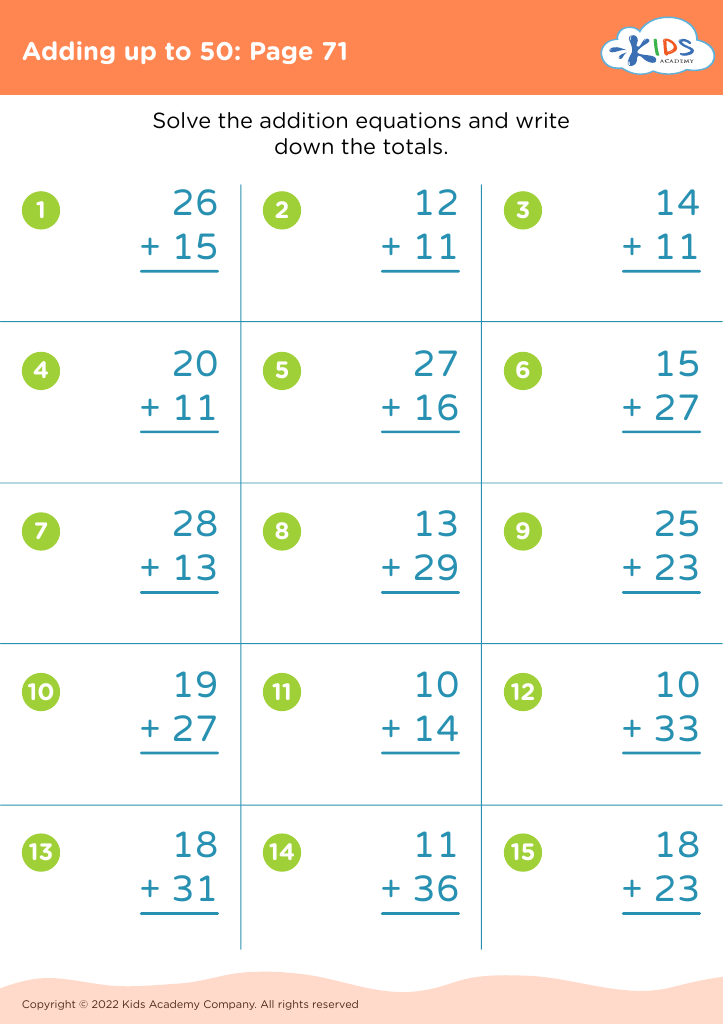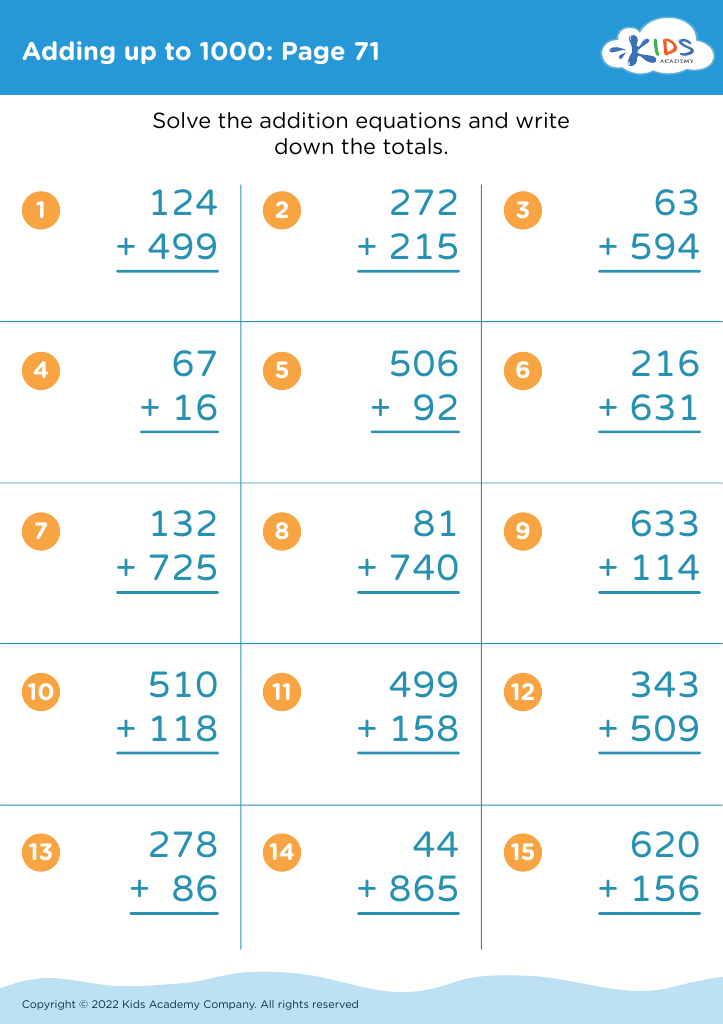Mathematical skills Math Worksheets for Ages 8-9
3 filtered results
-
From - To
Discover our expertly designed Mathematical Skills Math Worksheets for ages 8-9, crafted to enhance your child's math proficiency. These engaging worksheets focus on key concepts such as addition, subtraction, multiplication, and division, providing diverse exercises that foster critical thinking and problem-solving abilities. Perfect for classroom use or home learning, our resources cater to different skill levels, ensuring every child feels challenged yet capable. Help your child build confidence in their mathematical abilities while having fun with interactive activities! Explore our collection today to support your child’s journey towards mastering essential math skills in an enjoyable and effective way.


Twenty Five Cents or the Quarter Money Worksheet
Mathematical skills for ages 8-9 are foundational for a child’s cognitive development and future academic success. During this pivotal stage, students strengthen their understanding of fundamental concepts such as addition, subtraction, multiplication, and division. Proficiency in these areas enhances critical thinking and problem-solving abilities, which are essential skills not only in mathematics but across all subjects.
Parents and teachers should be concerned with these skills as they establish patterns for future learning. Mastery at this age promotes confidence, encouraging students to engage with more complex mathematical concepts in subsequent grade levels. Furthermore, solid math skills cultivate logical reasoning and analytical thinking, crucial for effective decision-making in everyday life.
Moreover, early mathematical competence is linked to progress in fields like science and technology later in school and career. Engaging children with interactive math activities can nurture their interest in the subject, making learning enjoyable and impactful. Ultimately, prioritizing math education at this age supports children's overall cognitive development, laying the groundwork for lifelong success in academia and beyond. By recognizing the importance of fostering these skills, parents and educators help children develop a positive attitude toward mathematics, making them more likely to embrace academic challenges in the future.



 Assign to My Students
Assign to My Students


















